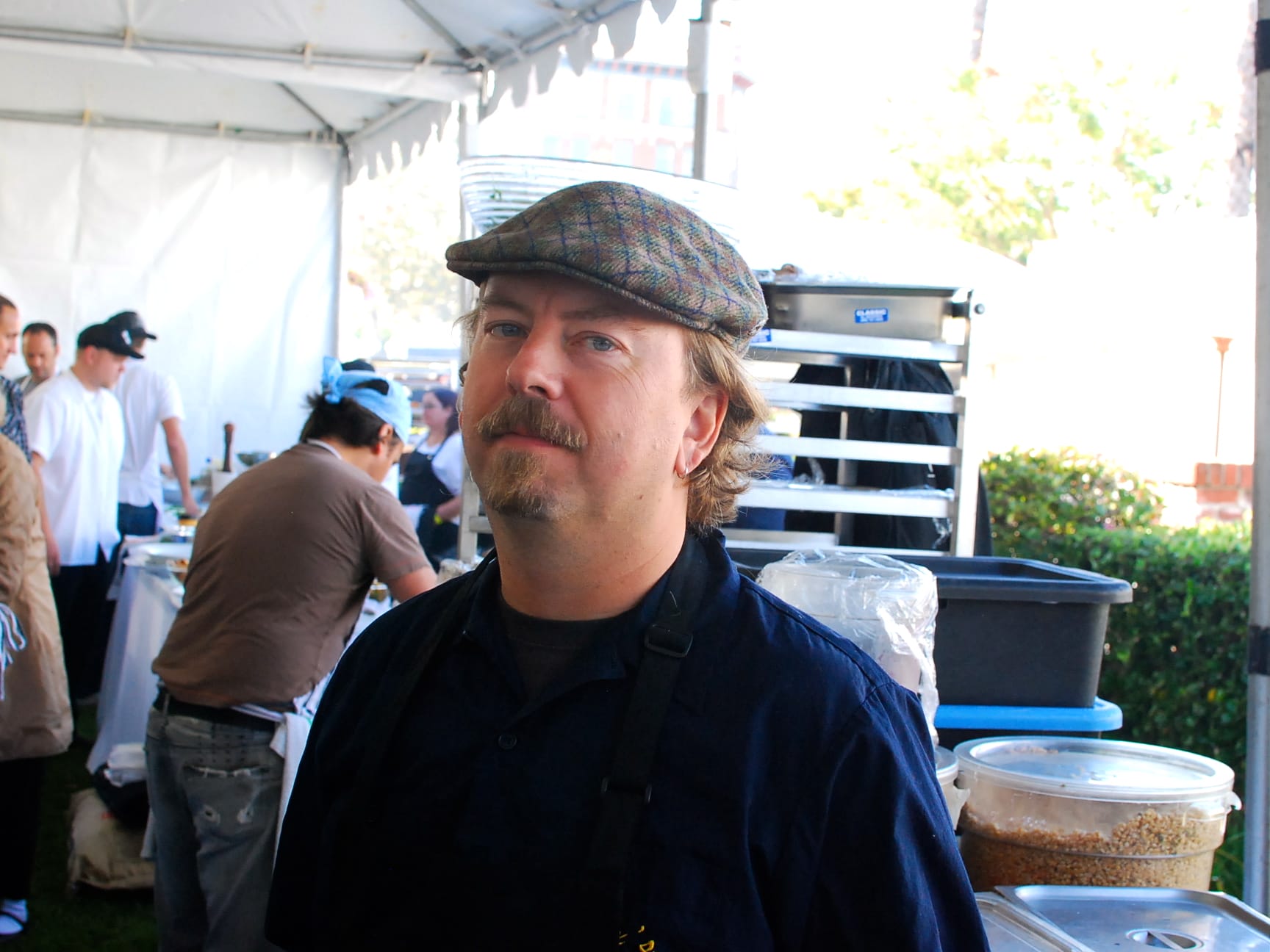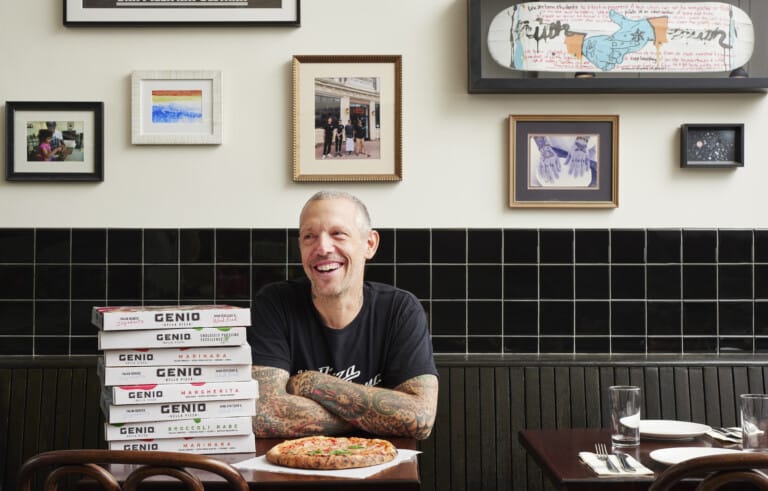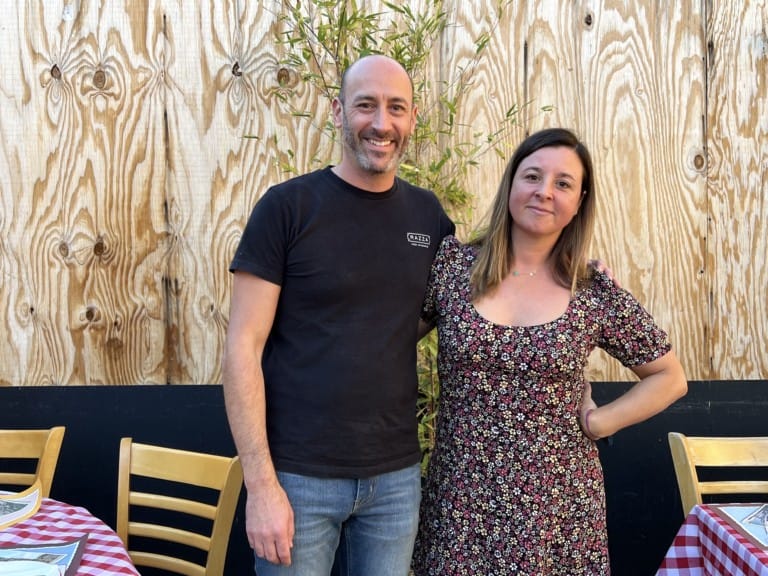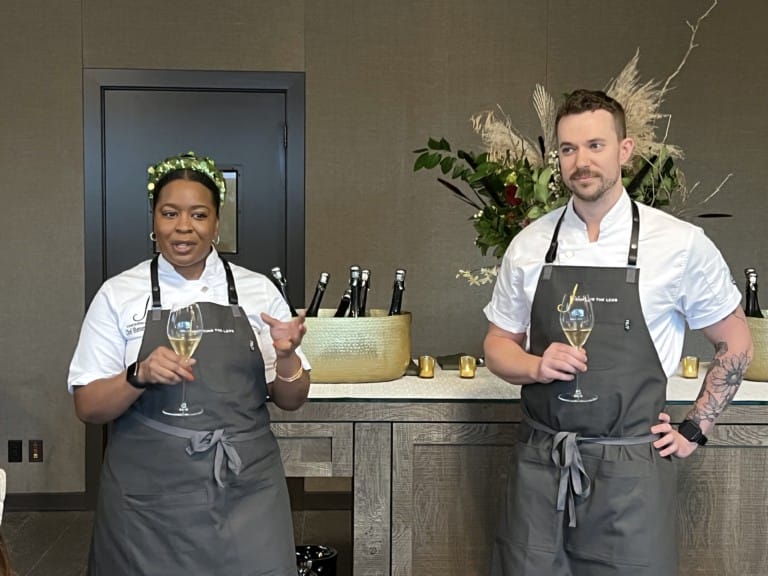Chef Neal Fraser has been a fixture on the Los Angeles dining scene since the early ’90s, when he first stepped into the kitchens at Caioti and Wolfgang Puck’s short-lived Eureka brewpub. He earned a following at Boxer before moving down Beverly Boulevard to open his own place with wife Amy Knoll Fraser, called Grace. They’ve been working to re-open that restaurant in some form, in the rectory of downtown’s Vibiana cathedral. In the meantime, the operate BLD on Beverly, and Fraser consulted on The Strand House this year in Manhattan Beach. We spoke with Fraser at Alex’s Lemonade, and he shared further insights.
Has your vision for Grace changed throughout the re-opening process?
Yeah, absolutely. It’s changed considerably.
In what ways?
It’s just like anything else. You kind of grow up with the times, and see what everybody else is doing, and what’s possible. My good friend Paul Kahan, in Chicago, they don’t design the menu for the restaurant until they find the space, and then the space kind of dictates the menu. A lot of that’s about timing. If you would have seen the space a year before or a year after, it might be a completely different thing. Because we’ve had so much time to look at it, it’s changed. It’s evolved. Our initial ideas have evolved, and I think they’ll continue to evolve until the day we open, which is always the best thing about doing a new project. You don’t really know what it’s going to be like until you open the doors, even through Friends & Family, it evolves. Then you open and you have to stay in that direction.
Are you still calling the restaurant Grace at this point?
I’m not sure. I think it will be multiple concepts. We’ll see. At the end of the day, that’s yet to be seen.
The biggest challenge of operating multiple restaurants would be?
Trying to be in five places at the same time. Trying to instill your employees to be owners, really try to make people work harder than an employee.
How do you that?
I don’t do that very well. My wife does it much better than me. Amy is much better at getting that going than I am. She seems to be empowering people better. It’s easier for me when I’m around a lot. I’m very good at empowering people when I’m there. It’s harder to do it from afar for me. Luckily I have a business partner that does it pretty well.
At what point did you know that you’d become a professional chef?
When I was little, I was riding up an escalator and decided I wanted to be a chef, and I just kept at it. I’m still unsure. It’s one of those things where I’ve been doing it for so long, it’s all I know…I still love what I do. I wake up in the morning and I’m still excited to go cook and to be a tradesperson. I wanted to learn a craft. When I first decided I wanted to be a chef, I wanted to learn a craft, nothing more than that. It could have been being a plumber, whatever, a technician, and the art of it kind evolved after that. One after the other, I wanted to be a member of a guild, more than I wanted to be an artist.
What do you look for when you’re hiring somebody to work in your kitchen?
It’s so hard right now. You never really know what you’re going to get. You hire some people you think are going to be amazing, and they suck. You hire some people you think are going to suck, and they really surprise you. It just depends. If they have a limited resume, you take a risk on them, and hopefully they work out. If they don’t, start over.
What was your very first night like working in a professional kitchen, and where was it?
First night in a professional kitchen – I worked in a pizza restaurant called Caioti – but the first real professional kitchen was a restaurant called Eureka. I never really worked the line. I worked the line maybe one night I was there. It was before I went to culinary school. It was exciting, it was like being a gladiator. It was like getting to ride into the arena with a bunch of people with swords and slay the dragon. It was pretty exciting.
What was your last international trip?
My last international trip was to Costa Rica. I went to Vietnam and Costa Rica this year. That was my last trip, which was in April of this year.
Did your trip to Vietnam or Costa Rica impact your menus in any way?
A little bit. More ingredients than anything else, but a little bit. I like to travel to travel too. Vietnam was with friends and Costa Rica was with family. It’s nice to have that balance.
How are you able to find balance in your life, if you’re even able to?
It’s difficult. Grace closing and being able to move on past that has been really great. It’s been really nice to spend time with my family and my daughter, and to reconnect with friends I haven’t seen in 20 years and make new friends because I had time to do it. It’s been really nice, but it’s difficult. I realized that when I do go back to work, I don’t want to go back to work like I did before. I don’t want to work 90 hours a week, working a station every day. I need to evolve a little bit and empower people to do good things.
Where and what do you like to drink when you’re not working?
Mainly, I’ve been enjoying bourbon.
Anywhere in particular?
In my living room.
Who’s the person you’ve never cooked with before that you’d most like to cook with?
Cook, like next to in a kitchen?
Yes.
I don’t know. That’s a good question. Maybe Juan Roca from Can Roca in Girona, Spain.
How come?
I just have a lot of respect for his molecular gastronomy, old school kind of classic French, i.e. Spanish food with modern technique. I think he melds those worlds well together.









Leave a Comment